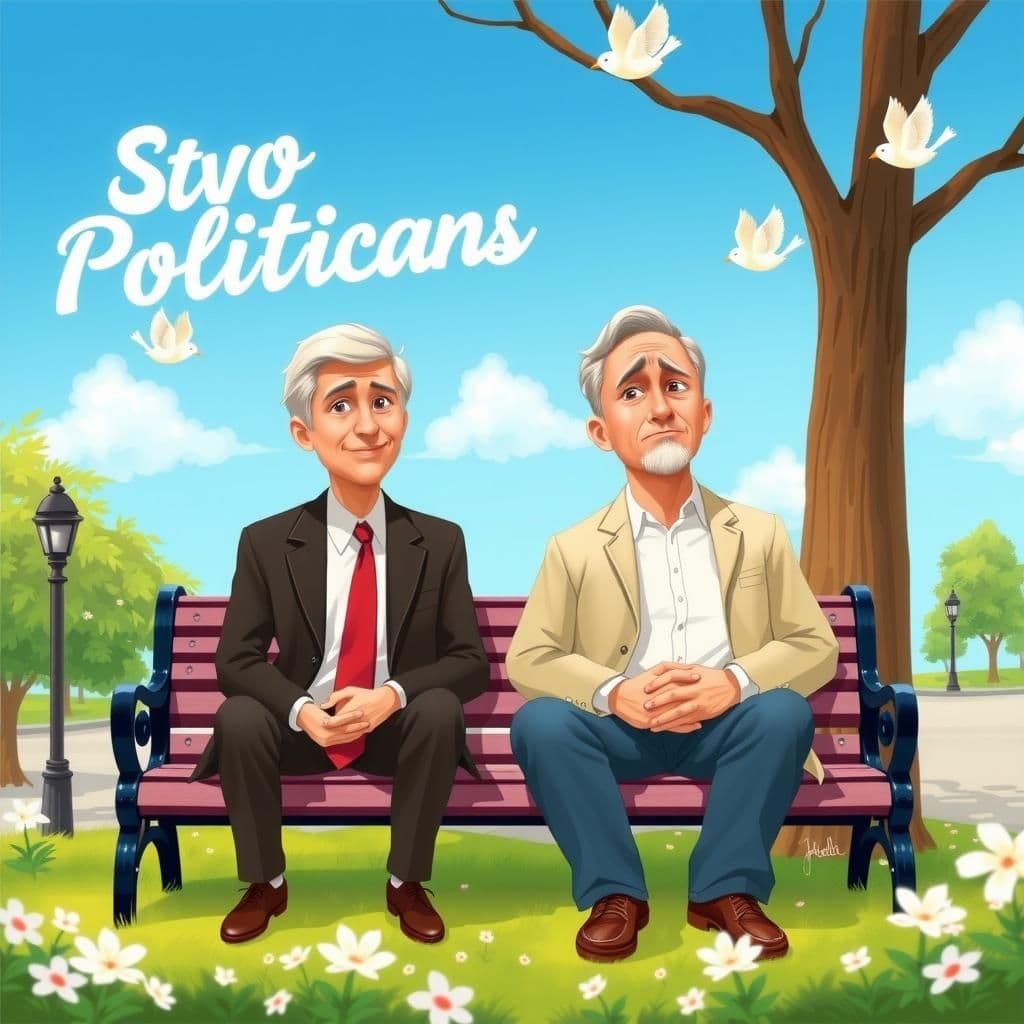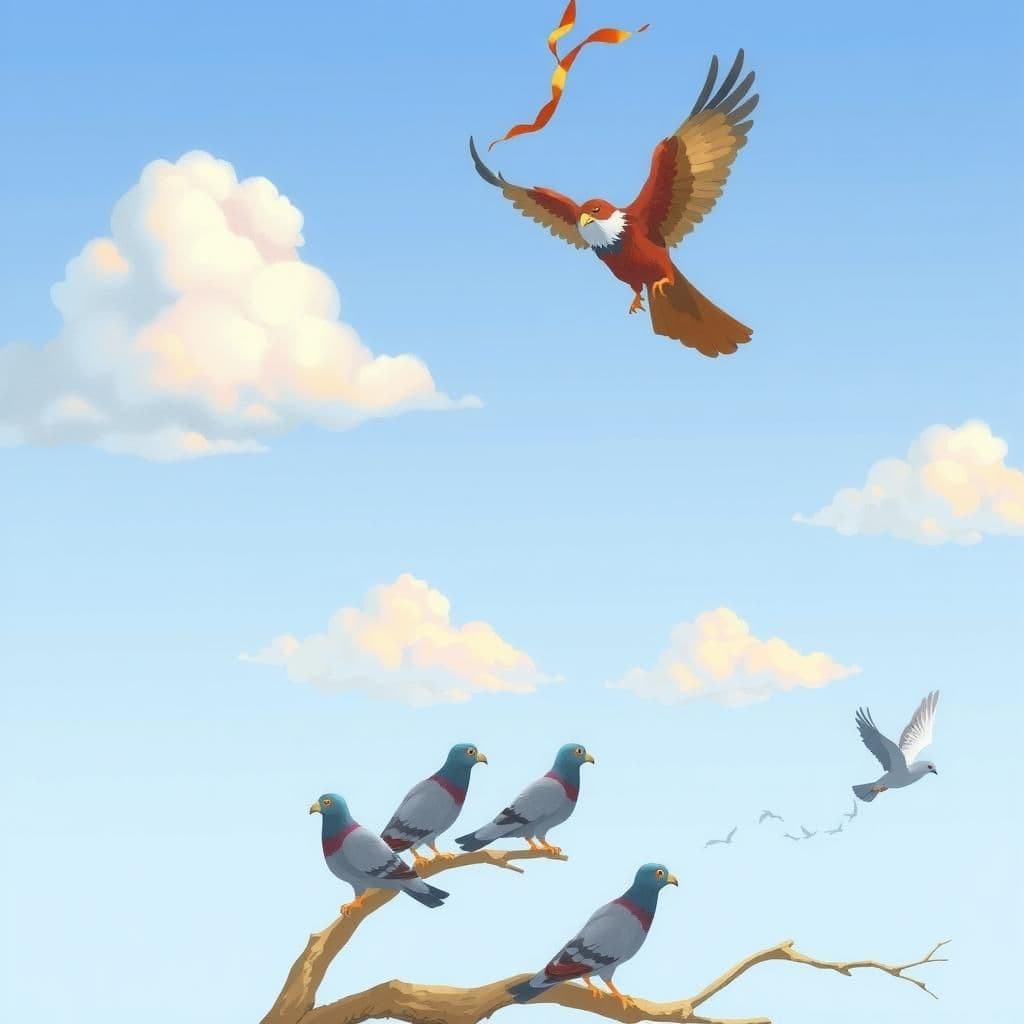Two Politicians
In "Two Politicians," a short tale with moral undertones, two politicians reflect on the elusive nature of gratitude in public service. One yearns for citizen appreciation, while the other cynically observes that such recognition can only be achieved by leaving politics. Ultimately, they share a moment of understanding and decide to be content with their positions, humorously swearing to accept their access to public funds, illustrating the moral lesson found in many famous fables.

Reveal Moral
"The moral of the story is that true fulfillment in public service may come from selflessness rather than seeking external validation or rewards."
You May Also Like

The Archer and the Eagle
In "The Archer and the Eagle," a mortally wounded eagle finds comfort in the fact that the arrow that struck him was feathered with one of his own quills, highlighting a profound lesson from moral stories. He reflects, "I should have felt bad, indeed, to think that any other eagle had a hand in this," showcasing the depth of his acceptance. This captivating moral story reminds us that sometimes, the source of our pain can provide solace, making it one of the best moral stories to inspire resilience.

The Kite, the Pigeons, and the Hawk
In the fable "The Kite, the Pigeons, and the Hawk," a group of Pigeons turns to a Hawk for help against a Kite's relentless attacks. After the Hawk defeats the Kite, he becomes overindulgent and vulnerable, leading the grateful Pigeons to blind him in a twist of fate. This life-changing story serves as a moral lesson about the dangers of excess and ingratitude in folklore and moral stories.

The Hawk and the Nightingale
In the classic moral story "The Hawk and the Nightingale," a Hawk captures a Nightingale and dismisses his pleas for freedom, arguing that he would be foolish to forgo an easy meal for the uncertainty of pursuing larger prey. This short moral story illustrates the wisdom of valuing what is readily available rather than chasing after uncertain prospects. As with many small moral stories, it teaches a timeless lesson about the dangers of greed and the importance of appreciating the present.